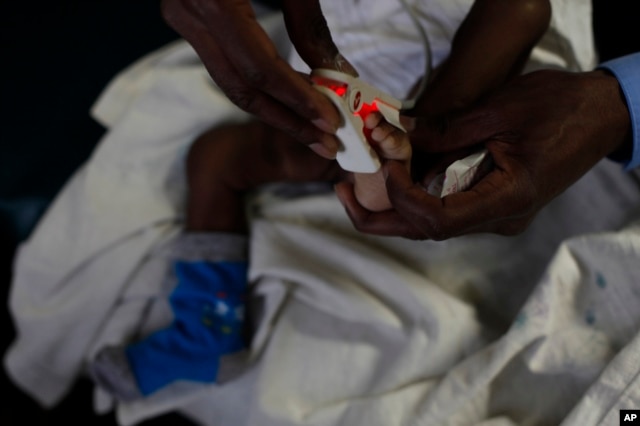BCBSRI obtiene la máxima puntuación de 100 en igualdad laboral para personas LGBTQ+

Study: New Treatment Cuts Malaria Infection Risk in Pregnant Women
A new strategy to prevent malaria, a disease that puts newborns at risk of death, offers hope that expectant mothers in malaria-endemic countries in Africa will be able to deliver healthy babies.
The risk of pregnant women becoming infected with malaria is very high in developing African countries. Researchers say 60 percent of women who showed up to be recruited for a prevention study had evidence of the parasite.
Malaria is responsible for more than 100,000 newborns death in sub-Saharan Africa each year. The disease can also cause infants to be born prematurely or at low birth weight, both of which are risk factors for newborn mortality.
So pregnant women in malaria-endemic regions are urged to sleep under insecticide-treated bed nets. Many also receive the inexpensive drug combination sulfadoxine–pyrimethamine, recommended by the World Health Organization to protect them against malaria.
That was once the standard treatment for the disease, but the malaria parasite has become largely resistant to those drugs, according to Grant Dorsey, an infectious-disease specialist at the University of California-San Francisco.
“We abandoned it over a decade ago for treatment because of resistance,» Dorsey said. «However, we are still using it to prevent malaria in pregnant women. So that was the kind of rationale behind our study — this drug currently being recommended to prevent malaria in pregnancy may not be working.”
FILE – A doctor puts a heart monitor on the foot of a baby who is suffering from severe malaria in the Siaya hospital in western Kenya.
Researchers have been experimenting with an artemisinin-based therapy, called dihydroartemisinin–piperaquine. In a study published in the New England Journal of Medicine, Dorsey and colleagues reported that treatment with the drug combination dramatically reduced the risk of malaria in a group of 300 Ugandan women, none of whom was infected when the study began.
Some women were given three doses over the course of their pregnancies, others received it monthly, and a third group got the standard treatment. In the first group, Dorsey said, the risk of being infected with malaria was reduced to 17 percent, and for those who got the drug each month, the risk fell to 5 percent. These figures contrasted with the risk for women in the third group, which was 40 percent.
Dorsey found the results encouraging.
«I think that this is a very exciting area, and if things play out as it looks, this could lead to a change in policy and really improve outcomes for women,” he said.
But there are drawbacks. Dorsey said the artemisinin drug combination is more expensive and must be given more frequently than the usual preventive medication.
The World Health Organization has requested larger studies looking at the effectiveness of dihydroartemisinin–piperaquine before recommending it to prevent malaria in pregnant women.


